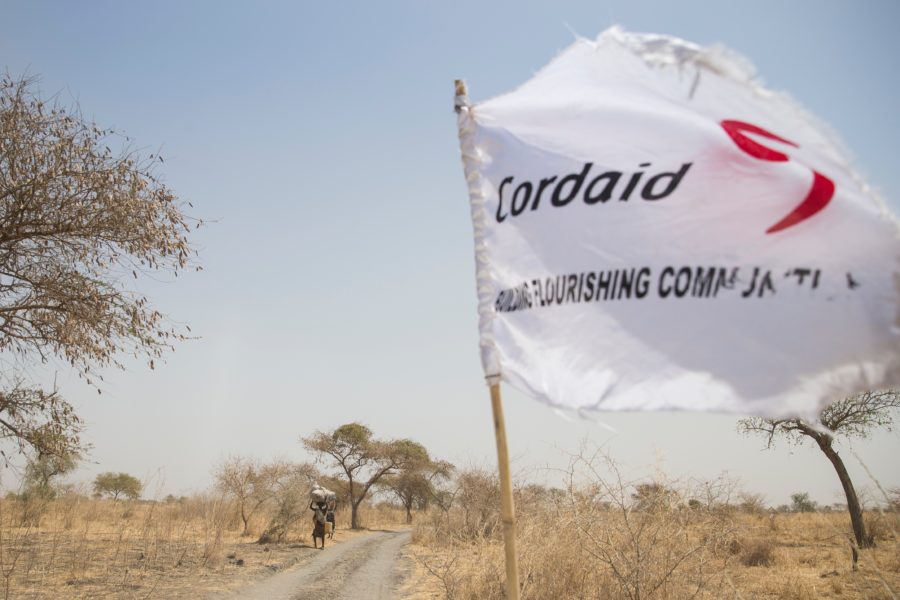Cordaid is excited to welcome Lorena Paz Quintero to the Board of Directors as the new Chief Financial Officer.

Inspired by her upbringing in Venezuela and backed by her experience in finance and the development sector, she firmly believes she can provide a valuable contribution to Cordaid’s mission to fight inequality in the world’s most fragile regions. Lorena will start her new job in January 2021.
Paz Quintero (44) will be playing an important role in guiding Cordaid through insecure times and in bringing many transitions to a good end. Decentralising and localising operations, adapting to the new reality during the global pandemic, attracting more funds: these are just a few examples of the complicated assignments only a real energetic and entrepreneurial spirit would have the guts to take on. Let’s take a moment to get to know Lorena Paz Quintero a bit better.
Managing Cordaid through all these processes doesn’t sound like a task for the faint-hearted. How does that make you feel?
“It’s true. Cordaid is facing a lot of challenges. But personally, that makes me feel like I can truly contribute something. It means that the skills and expertise I possess are needed. My profile and experience lined up really well with what Cordaid was looking for. I am ready and excited to join this wonderful organisation.”
You currently occupy an important position in the finance department at Oxfam Novib. What compelled you to join Cordaid? Or in other words, why leave Oxfam Novib?
“I love working at Oxfam Novib. When I decided to move from the private sector into a non-profit organisation, I was strongly motivated to add something valuable to my work life and experience. I wanted it all to have more meaning. I have always been eager to develop myself and Oxfam Novib gave me that opportunity, for which I am very thankful. However, I had reached the highest position there in the field of finance. When this opportunity at Cordaid came along, it triggered my drive to continue to grow.”
What would you say are the main differences between the two organisations?
“I think it is interesting that Cordaid has more programmes that are focused on access to health care and education. Somehow, I feel an affinity towards those topics. Maybe also because the health care system in my native country of Venezuela is in such a bad shape, I feel that access to quality health care should be improved for marginalised people everywhere.
“Growing up, I have witnessed the disastrous consequences of a strong divide between rich and poor.”
Another difference is: the work of Cordaid is rooted in Christian values. Oxfam Novib’s identity is more progressive and secular. But right now, still as an outsider, I do see Cordaid as quite a progressive organisation, while respecting certain values, such as solidarity, respect and wanting a dignified life for all. This strongly appeals to me, perhaps also because of my Catholic background.”
In what other ways do you think your childhood in Venezuela has shaped your drive to work towards a more just and better world?
“Growing up, I have witnessed the disastrous consequences of a strong divide between rich and poor. My family belongs to the middle class, but I have seen children grow up in abject poverty and it was clear to me early on that they would have much fewer chances to succeed in life. I carry that reality with me and it motivates me to want to fight injustice and inequality.”
Living conditions in Venezuela have been dire for quite a while now and seem to be severely exacerbated by the COVID-19 crisis. How does that make you feel?
“Right now, the country is enveloped in sadness. The health care system has completely collapsed, there is no way they can adequately deal with the COVID-19 crisis and children are dying. The economy is paralysed and the government is covering things up. Since the pandemic, I also notice decreased attention for the crisis in Venezuela. I have a hard time dealing with that.
Venezuelans were always among the happiest people in the world. There were always many problems, but in the happiness ranking, we would often rank high. People have a strong survival instinct. They will cope. But what worries me is that I see the hope slipping away. They are becoming tired. My family will sometimes stand in line for gasoline for one whole week. They take turns and they make sure to stay close together because the risk of being robbed is extremely high. People are so desperate. Even sugar has become a luxury product.
For a while, there was hope for a strong political opposition to turn things around. But that movement seems to have lost its momentum. That has caused a serious blow to the hopes of the Venezuelan people.”
Now you are living in a country that also ranks high in the ‘happy lists’, but for different reasons, I’m sure. How did you end up in this wonderland of structure, frugalness and rain-soaked gloom called the Netherlands?
“The short answer is: I followed my heart. My husband is Dutch. Why do I still live here? The Netherlands has become my home. I have been living here for over 20 years, and although my roots will always lay in Venezuela, I would say those roots have extended and I feel partly Dutch now.”